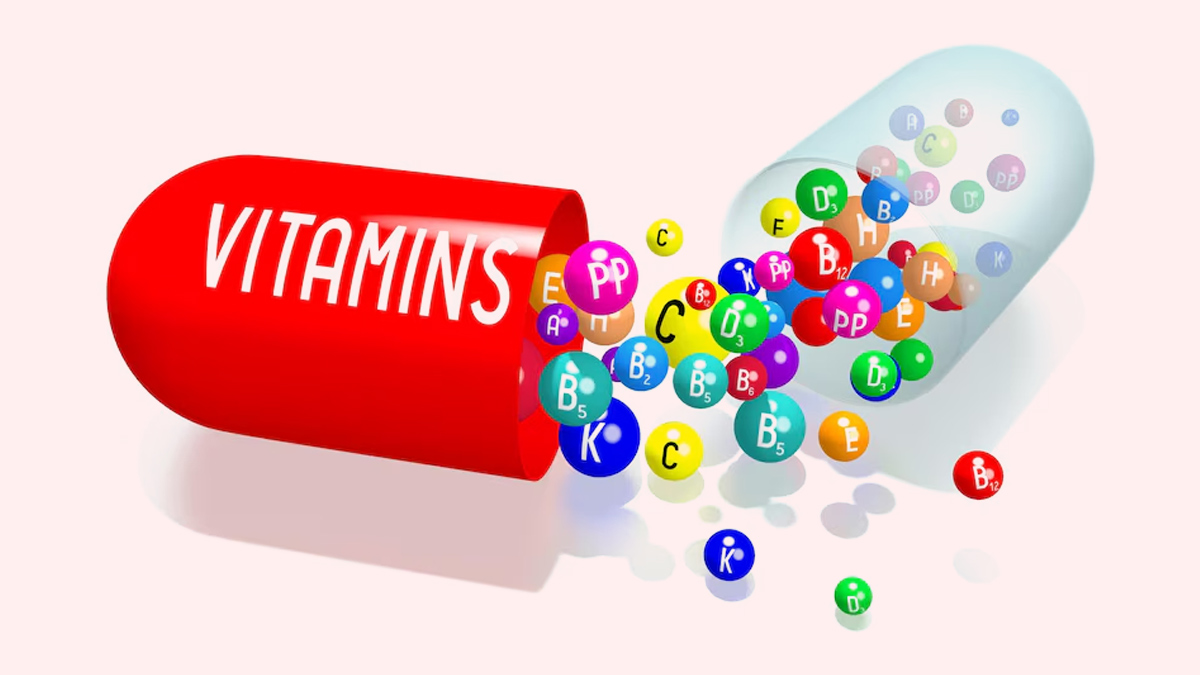
Pregnancy is a time of immense change, both for the mother and the developing baby. As the body works tirelessly to support new life, the nutritional demands increase significantly. While a balanced diet forms the foundation of a healthy pregnancy, it can be challenging to get all the required nutrients through food alone. This is where prenatal vitamins step in, ensuring both mother and baby receive the vital nutrients needed for a healthy journey from conception to birth.
Table of Content:-
To understand the importance of prenatal vitamins, OnlyMyHealth team interacted with Dr Sadhna Singhal Vishnoi, Senior Consultant, Obstetrics and Gynaecology, Cloudnine Group of Hospitals, New Delhi, Punjabi Bagh. She says, "Prenatal vitamins are essential supplements that provide the necessary nutrients to support the health of both the mother and the developing baby during pregnancy. While a balanced diet is crucial for overall health, prenatal vitamins ensure that mothers-to-be get the right amount of nutrients that might be difficult to obtain through food alone."
Why Prenatal Vitamins Matter
Pregnancy places increased demands on the body’s nutrient stores. Prenatal vitamins are specifically designed to support these needs, contributing to the healthy growth of the baby while maintaining the mother’s well-being.

1. Preventing Neural Tube Defects
Neural tube defects (NTDs), such as spina bifida, can occur early in pregnancy, often before a woman knows she is expecting. Folic acid, a B-vitamin, is essential in preventing these defects. Taking 400-800 mcg of folic acid daily, ideally starting at least one month before conception, is highly recommended.
Dr Vishnoi explains, "Folic acid supports the development of the neural tube, which later forms the baby’s brain and spinal cord. Early supplementation is key to preventing NTDs and ensuring a healthy start for the baby."
2. Supporting Fetal Development
Prenatal vitamins supply critical nutrients that support the development of the baby’s organs, bones, and tissues. For mothers, these vitamins help maintain energy levels, prevent anaemia, and provide the body with the resources needed to sustain pregnancy.
Also read: Prenatal Yoga For Pregnant Women: Asanas To Prepare For Labor
Key Nutrients in Prenatal Vitamins

Different nutrients serve specific roles in supporting pregnancy. Some of the most critical include:
1. Folic Acid
This is indispensable for cell division and the formation of the baby’s neural tube. “It is recommended to continue folic acid intake throughout the first trimester and potentially the entire pregnancy,” Dr Vishnoi said.
2. Iron
Pregnancy increases blood volume, heightening the demand for iron to prevent anaemia. Prenatal vitamins usually include around 27 mg of iron, helping to combat fatigue and reduce risks of complications.
3. Calcium
Vital for the baby’s developing bones and teeth, calcium also prevents maternal bone loss. “While many prenatal vitamins provide 200-300 mg of calcium, it’s essential to supplement with calcium-rich foods such as dairy, leafy greens, or fortified alternatives,” Dr Vishnoi advised.
4. Vitamin D
This nutrient aids calcium absorption and supports the baby’s skeletal development and immune function. Prenatal vitamins typically include 400-800 IU of vitamin D, though additional supplementation may be necessary based on individual needs.
5. Iodine
“Crucial for thyroid function and cognitive development, iodine deficiency can lead to developmental delays,’ Dr Vishnoi notes. Prenatal vitamins containing iodine are particularly important for vegetarians or vegans, who may lack dietary sources of this nutrient.
6. DHA (Docosahexaenoic Acid)
An omega-3 fatty acid, DHA supports brain and eye development. While not always included in prenatal vitamins, DHA can be taken as a separate supplement or through DHA-rich foods like fatty fish.
Also read: Prenatal Vitamins For Non-Pregnant Women: Benefits And Risks Explained
When to Start Taking Prenatal Vitamins

Timing is critical when it comes to prenatal vitamins. Ideally, women should start supplementation three months before trying to conceive. This ensures adequate levels of nutrients such as folic acid during the early, critical stages of fetal development.
Dr Vishnoi advises, "Starting prenatal vitamins before conception and continuing through pregnancy ensures that the mother’s body is prepared to support the baby’s growth from the very beginning. For those who have already conceived, starting prenatal vitamins immediately is crucial."
Continuing After Pregnancy
Many women benefit from continuing with a postpartum supplement during recovery and breastfeeding. This supports maternal health and helps meet the nutritional demands of nursing.
Conclusion
Prenatal vitamins are a cornerstone of maternal and fetal health, ensuring a smooth and healthy pregnancy journey. From folic acid to DHA, these supplements provide vital nutrients that may not always be available in sufficient amounts through diet alone.
By starting prenatal vitamins at the right time and tailoring them to individual needs under the guidance of a healthcare provider, expectant mothers can take proactive steps to nurture both their health and their baby’s development. Dr Vishnoi concludes, "Prenatal vitamins are not a substitute for a healthy diet but a complement to it, ensuring that mothers-to-be have all the resources they need for a successful pregnancy."
Also watch this video
How we keep this article up to date:
We work with experts and keep a close eye on the latest in health and wellness. Whenever there is a new research or helpful information, we update our articles with accurate and useful advice.
Current Version